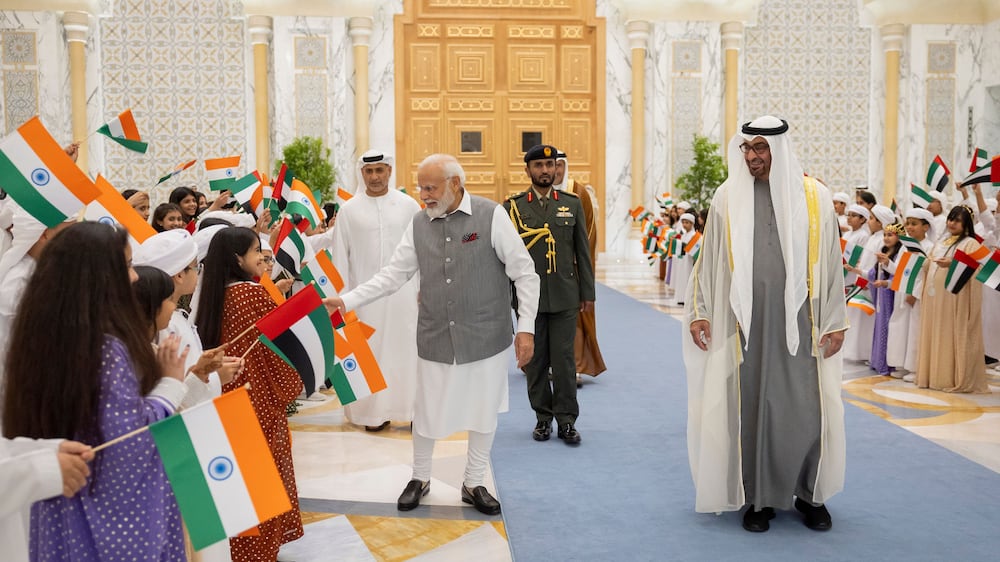The UAE and India have entered into a strategic agreement to launch a domestic card initiative in the Emirates, a move aimed at boosting the local payments system.
It will be based on India’s RuPay cards, which includes debit, credit and prepaid options, and are issued throughout the banking spectrum, including public, private and small lenders.
NPCI International Payments Limited (NIPL) – a wholly owned subsidiary of the National Payments Corporation of India – has joined forces with the UAE Central Bank's Al Etihad Payments company.
The companies will work together to develop the UAE's national domestic card programme.
The initiative aims to enable the growth of e-commerce and digital transactions in the Emirates, boost financial inclusion and support the country’s digitisation goals.
It also seeks to increase alternate payment options, reduce the cost of payments and enhance the UAE's competitiveness and position as a global payments leader.
“The partnership agreement between NPCI and CBUAE for the development of a national card scheme for the UAE modelled on India’s RuPay card is another milestone in our economic engagement,” state-owned news agency Wam reported, quoting Piyush Goyal, India’s Minister of Commerce and Industry.
“The India-UAE partnership will go a long way and would be exemplary for the world.”
The partnership aligns “perfectly with NIPL's mission to offer its knowledge and expertise to assist other countries in establishing their own cost-efficient, and secure payment systems”, India’s Ministry of Commerce and Industry said on Thursday.
RuPay is a global card payment network with wide acceptance at shops, ATMs and online platforms.
More than 750 million RuPay cards are currently in circulation and make up more than 60 per cent of the total cards issued in India.
The domestic card solution is based on the principles of speed to market, innovation, digitisation and strategic independence, according to the ministry.
Provided by NIPL, the solution consists of RuPay stack and value-added services such as fraud monitoring and analytics.
NIPL will also assist Al Etihad Payments with the operating regulations for the domestic card initiative.
UAE President hosts reception for India's Narendra Modi in Abu Dhabi

The latest deal comes after the UAE and India signed agreements in July to promote the use of local currencies for cross-border transactions and support the interlinking of their payment and messaging systems.
At the time, the countries said that they would explore ways to link their respective card switches – RuPay switch and UAESwitch – for mutual acceptance of domestic cards and processing of card transactions.
The UAE Central Bank introduced UAESwitch in 1996 to link the automated teller machine network of all lenders in the Emirates.
UAESwitch provides regional and international connectivity with other similar national systems.
In August, the UAE and India also began settling bilateral deals using local currencies as part of the agreement, with the new system expected to help reduce transaction costs and boost cross-border trade.
The first crude oil transaction under the local currency settlement system took place between Adnoc and the Indian Oil Corporation, and involved the sale of about a million barrels of crude oil, with Indian rupees and dirhams used.
The UAE and India have been boosting ties following the signing of a comprehensive economic partnership agreement that came into force in May last year.
In the first 12 months of the pact, bilateral non-oil trade reached $50.5 billion, representing a growth of 5.8 per cent annually.
The two countries are also in negotiations for an India-UAE investment treaty.







